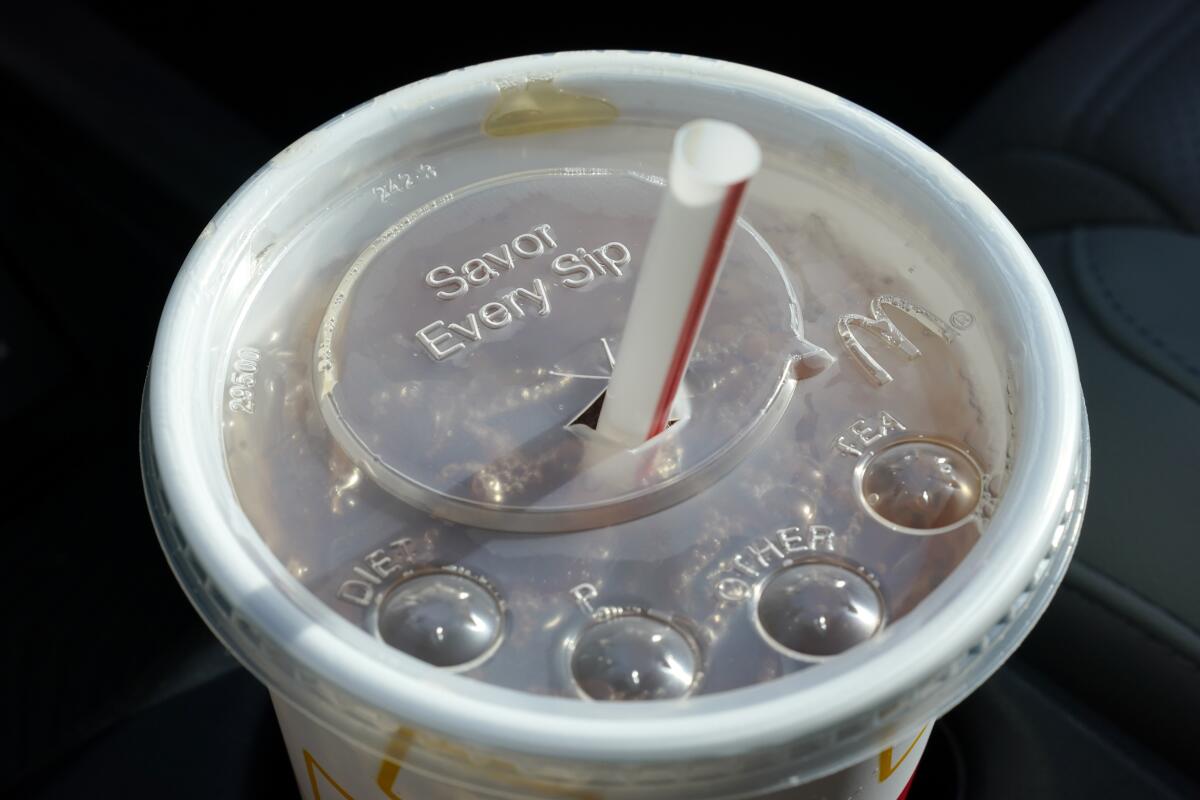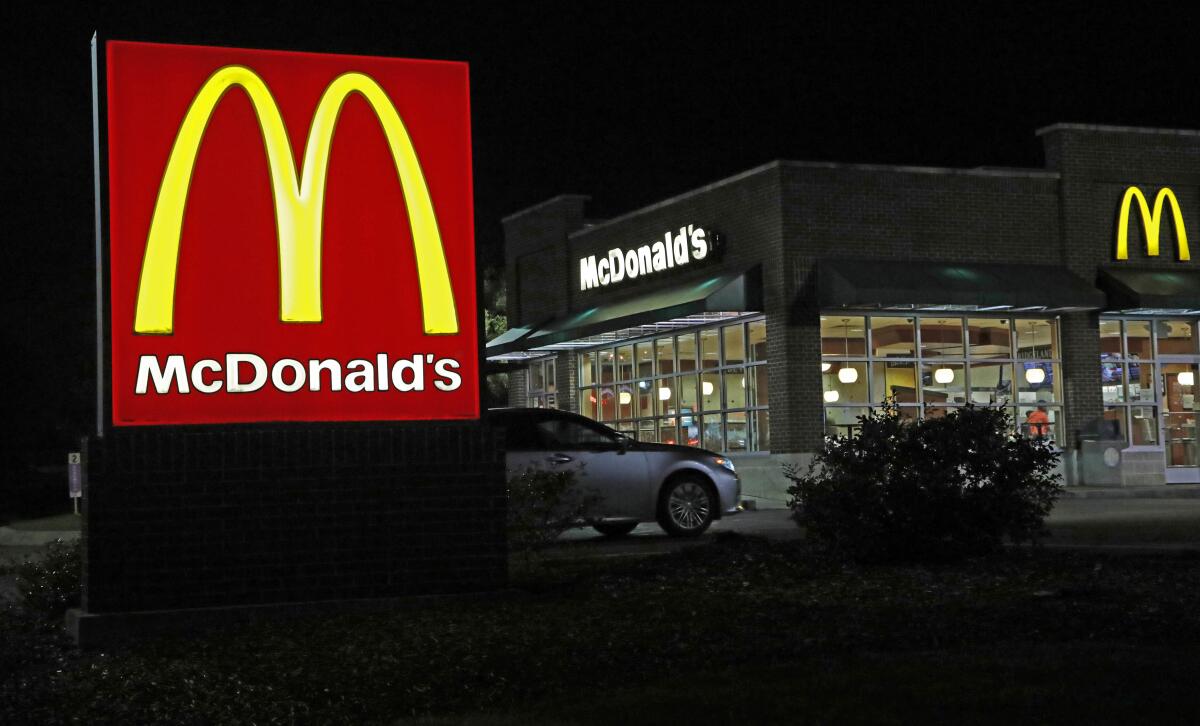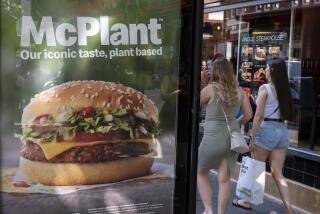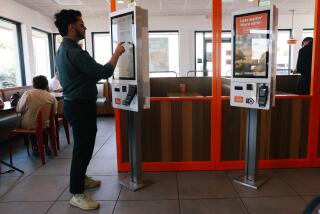Coca-Dr-Sprite-Pepper-Cola? Forget mixing your own as McDonald’s ditches self-serve sodas

It’s the end of an era: McDonald’s has begun to gradually phase out self-serve soda machines in dining rooms at its restaurants across the United States.
The company aims to complete the phaseout by 2032, citing changing consumer habits, including a surge in ordering from online apps and drive-throughs. That means fewer customers in the restaurants, serving themselves soft drinks.

The eatery, known for its golden arches, began installing the self-serve soda fountain in 2004, allowing customers to not only help themselves but also create combinations of differently flavored drinks.
“McDonald’s will be transitioning away from self-serve beverage stations in dining rooms across the U.S. by 2032,” the fast-food chain said in a statement to KTLA. “This change is intended to create a consistent experience for both customers and crew across all ordering points, whether that’s McDelivery, the app, kiosk, drive-thru or in-restaurant.”
The reduction in foot traffic can also be seen in McDonald’s most recent earnings report, which stated that digital sales made up 40% of total sales.
The fast-food giant is also moving to reduce the sit-down dining space through the creation of small-format stores known as “CosMC’s,” a mini version of the eatery.
The change at McDonald’s is one of the many ways fast-food restaurants have shifted the dining experience in response to consumer behavior. Another notable change was reported at a Starbucks in the San Fernando Valley, which temporarily removed all of its furniture inside the restaurant, citing “safety concerns.”
More to Read
Sign up for Essential California
The most important California stories and recommendations in your inbox every morning.
You may occasionally receive promotional content from the Los Angeles Times.











